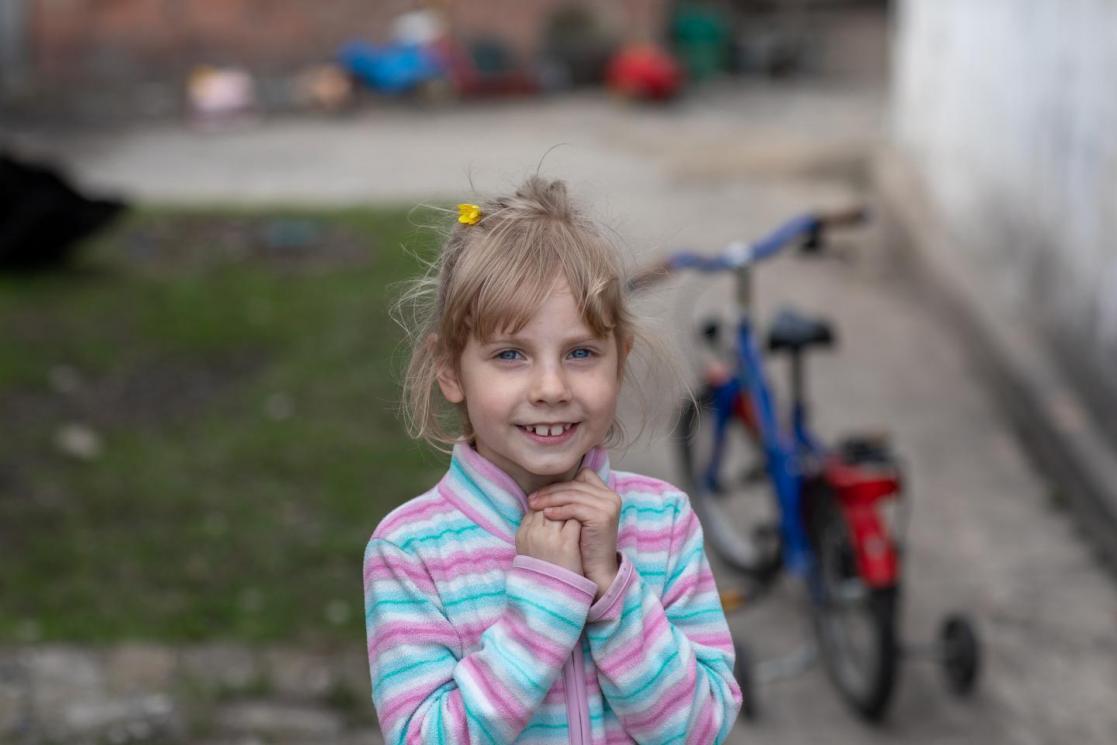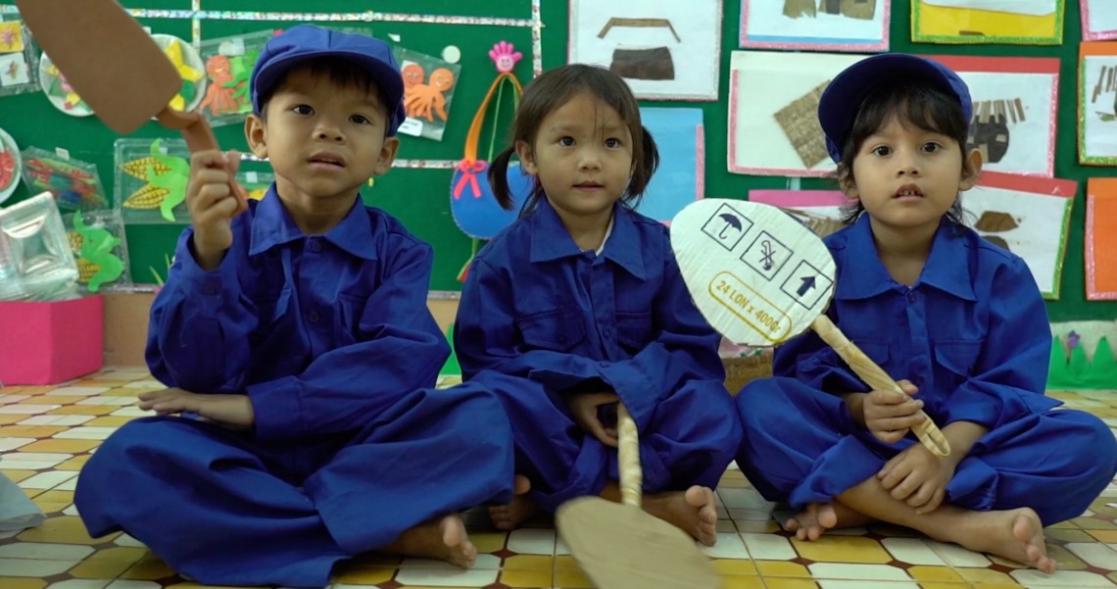Her voice will bring change: online and offline

The EU joins the UN in marking the 2021 International Day of the Girl Child. This day aims to highlight and address the needs and challenges girls face, while promoting girls' empowerment and the fulfilment of their human rights.
The theme for this year’s International Day of the Girl Child is 'Digital generation. Our generation'. In an age where digital platforms have become increasingly necessary, some 2.2 billion people below the age of 25 still do not have internet access at home and girls are more likely to be cut off. The gender gap for global internet users grew from 11 per cent in 2013 to 17 per cent in 2019. In the world’s least developed countries, it hovers around 43 per cent.
But the gender digital divide is about more than connectivity. Girls are also less likely than boys to use and own devices, and gain access to tech-related skills and jobs. Only by addressing the inequity and exclusion that span geographies and generations can we usher in a digital revolution for all, with all.
It is important to amplify the diversity of these tech trailblazers, while widening the pathways so that every girl of this generation, regardless of race, gender, language, ability, economic status and geographic origin, lives her full potential.
In 2021, the EU supported Generation Equality Forum launched five-year commitments for bolder solutions to gender inequality – just as the world entered the second year of the COVID-19 pandemic.
The EU’s commitment to promote, protect, fulfil and respect the rights of the child is a global commitment. The new comprehensive EU Strategy on the Rights of the Child and the European Child Guarantee were adopted in May 2021 to better protect all children, to help them fulfil their rights and to place them right at the centre of EU policy making. Through this strategy, the EU aims to further strengthen its position as a key global player in protecting and supporting children around the world. The EU is instrumental in strengthening access to education, services, health, and in protecting them from all forms of violence, abuse and neglect. The situation of girls is particularly difficult with millions continuing to be victims of discrimination and gender-based violence.
The new EU Gender Action Plan adopted in November (GAP III) addresses the rights of the girl, particularly by calling for the elimination of harmful practices, such as Female Genital Mutilation (FGM), child, early and forced marriage, and gender-biased sex selection.
The EU continues supporting two global programmes addressing child, early and forced marriage and FGM:
- In April, the Spotlight Africa Regional Programme was signed in Addis Ababa with an overall budget of EUR 30 million which includes supporting the regional response to prevent harmful practices, focusing specifically on FGM and child marriage. Through these programs the EU supports actions to challenge harmful social norms at grassroots level with the strong engagement of girls and women, as well as boys and men.
- In August, the Commission adopted a Decision to support the continuation of the Global Programme to Prevent Son Preference and Gender-biased Sex Selection: Improving the sex ratio at birth in the Caucasus (EUR 2 million). The action will contribute to strengthening evidence-based national policies and programmes in addressing son preference and gender inequalities resulting in gender-biased sex selection in Armenia, Azerbaijan and Georgia.
Both programs contribute to ending harmful practices by focusing in particular on comprehensive approaches to education and empowerment of girls, sexual and reproductive health and rights, justice and participation.
The International Day for the Girl Child also sees the kick off of the European Week of Action for Girls, whose goal is to ensure girls’ voices and aspirations are heard by the EU institutions, and that girls’ rights are at the core of the EU’s external action. The EEAS Ambassador for Gender and Diversity Stella Ronner-Grubačić and Ambassador to the African Union Brigitte Markussen are taking part by engaging with girl activists from Europe and Africa, to hear their voices to strengthen the EU-Africa partnership and put girls and children’s rights and aspiration at the heart of our joint work.
https://twitter.com/eu_eeas/status/1446389070557503517
EU supports girls around the world...
A lifetime under fire
“Mom, do you hear the shooting again?” Vika asks her mother, Anna.
“Yes. It’s just like Winnie the Pooh,” Anna replies. “Boo! Are you scared?
“No,” says Vika. “Because you are next to me!”

UNICEF Ukraine
For girls and children in Ukraine like Vika the only life ever known to them is one filled with shooting, landmines and explosions. Vika turned seven in September – the seventh year since the conflict broke out in eastern Ukraine. Her family returned to their home when a fragile truce was temporarily achieved in eastern Ukraine. Now, at last, Vika is able to go to school.
“I want to go to school because I want to become a teacher”
Vika is excited to study and make her dreams come true. Read Vika’s full story
Fate takes a positive turn for Malaika
Malaika (not her real name) is an adoloscent from Chiwembe village in Ntchisi, a tobacco-growing district in central Malawi. She is the youngest of five siblings. When her father passed away in 2016, her mother remarried, and her stepfather supported the family. Taking advantage of her desperation, the stepfather started making sexual advances as a precondition for him to meet her school needs. Malaika’s resistance resulted in him no longer providing any support to her, forcing her to drop out of school.
“The time I spent out of school, my friends were learning while I was at home. I had little time to study and more to work. Every time I opened books, teardrops soaked the pages. I constantly asked myself: Why always me?”
Her ‘out of school’ status continued when schools in Malawi closed due to the COVID-19 pandemic.
When schools reopened in November 2020, the tables finally turned for Malaika as she got the good news that she was granted a scholarship with the support of the Spotlight Initiative. Read Malaika's full story
Can a little girl play with construction materials?
This question could be non-sense to most of us. However, many teachers in the center of Vietnam have worked hard in recent years to convey a “Yes” to this question. In Vietnam, gender stereotypes often limit boys and girls at very early ages in preschools and in their daily life. By removing gender-stereotypes from the children’s learning and playing environment, all children are able to develop to their fullest potential. They no longer absorb potentially harmful stereotypes that could become the basis for gender-based violence later in life.

“I have started to change the decoration in the classroom to remove the gender-stereotypes. for example: workers’ images in construction corner can now be boys and girls."
- Teacher at Quang Ngai province, Vietnam
The Gender-responsive teaching and learning in the early years (GENTLE) project is co-funded by the EU, and is implemented by VVOB Vietnam and the Research Centre for Gender, Family and Environment in Development (CGFED) between 2018 and 2021. Read the full story on Breaking Gender Stereotypes
See also
- Digital generation. Our generation.
- Generation Equality Forum
- European Week of Action for Girls
- EU Strategy on the rights of the Child
- EU Guidelines on violence against women and girls and combating all forms of discrimination against them
- Mozambique, EU and UN renew commitment to end violence against women and girls





